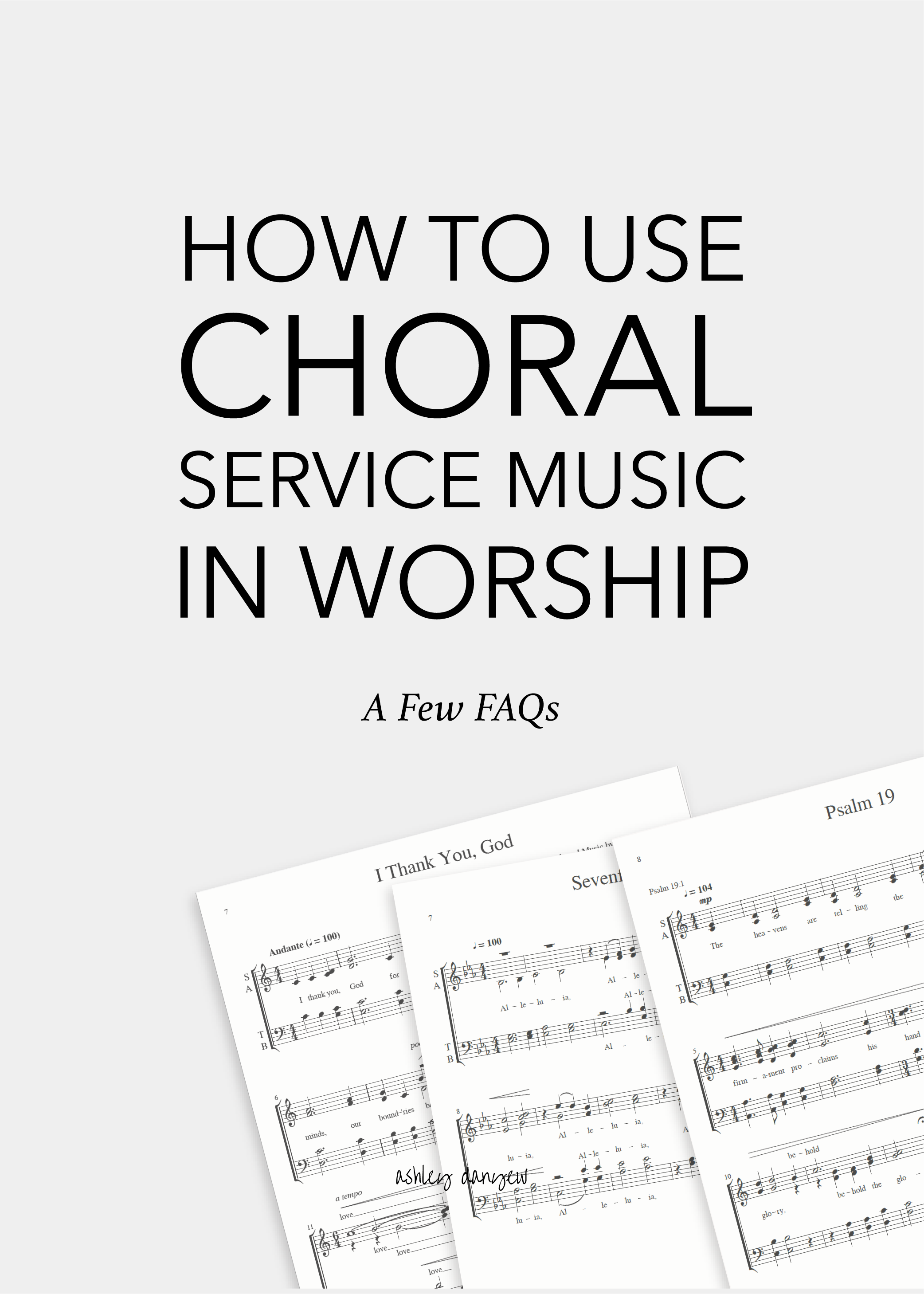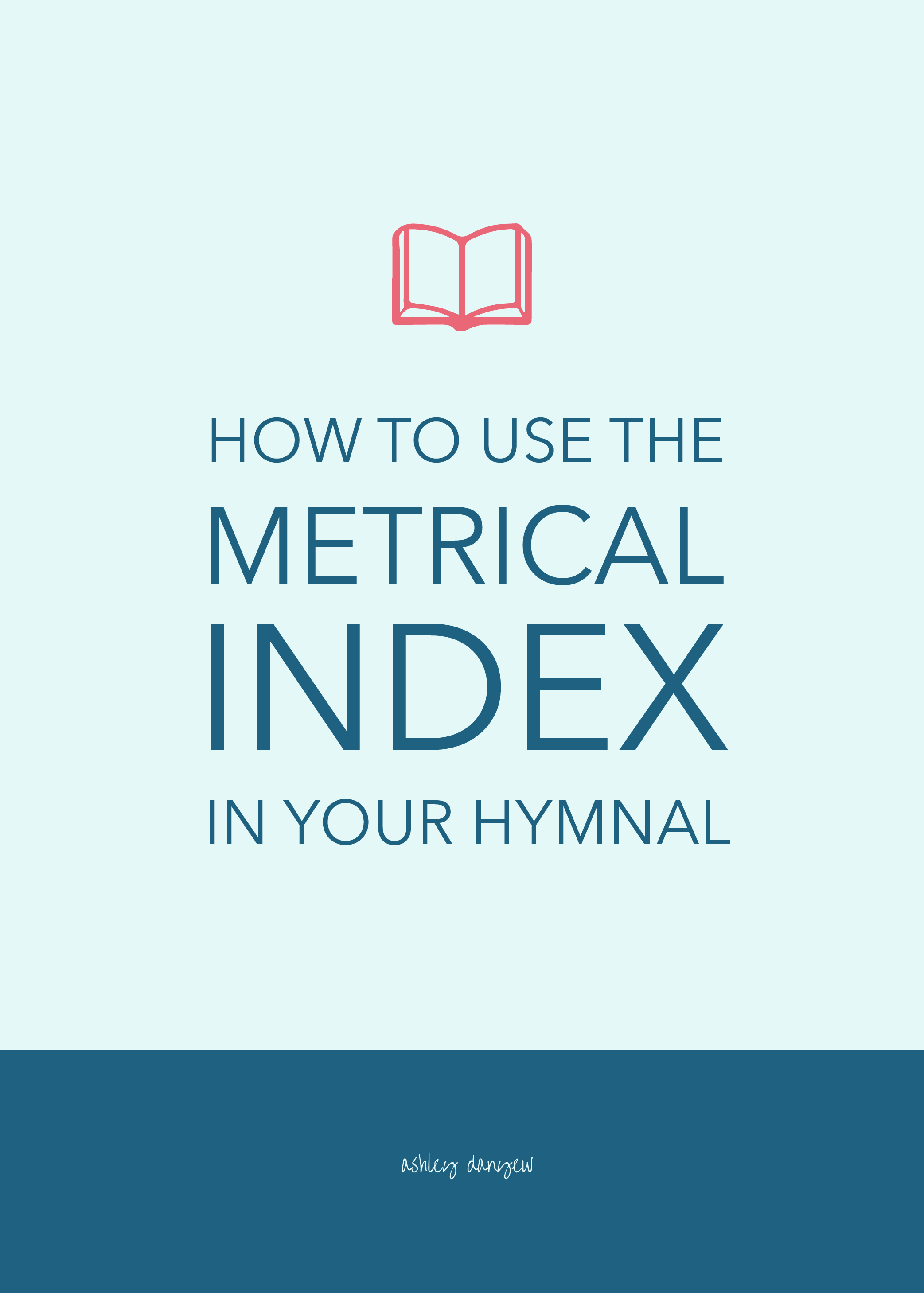We gather together on Sunday mornings, in churches old and new. In "Sunday best" and casual attire. In old wooden pews and folding chairs. No matter where or how we worship, we come together for the same reasons—to feed our souls, to shape and strengthen our faith, to be reminded of who God is.
We retell the stories of our faith, we remember God's promises, we claim God's victory over the world, we pray and praise and recite what we believe.
And we can do it all through singing. This is the power of musical theology.
Theology is "the study of the nature of God and religious belief." Musical theology refers to hymns and songs with rich, meaningful text that speaks to who God is and what we believe. There is power in this:
Hymns and songs as theology.
Hymns and songs as an affirmation of faith.
Hymns and songs as Scriptural teaching aid.
Hymns and songs as worship.
When we sing our faith, when we describe God's faithfulness or love or grace or provision, when we sing the Scriptures, we internalize it. We remember it. We write it on our hearts.
"Worship songs can't just be rooted in culture - they won't be deep enough. They have to be rooted in scripture." - Matt Redman
It doesn't matter what style of music you sing. The important thing is the text. It has to say something, it has to mean something. It should teach us something about our faith and who God is. It must be theologically-grounded and scripturally accurate.
Much has been written on this topic, so today, I thought I'd share nine insightful articles and indexes based on the theology of hymns and contemporary worship songs:
Nine Articles on the Theology of Hymns and Songs
1. The Hymnal As Teacher
Leonard J. Vander Zee
"It has often been said (because it’s true) that Christians learn more of their working theology from the hymns they sing than from all their catechism or Sunday school classes or adult education groups." This even applies to some contemporary music - the author cites songs by Keith Getty such as "In Christ Alone" and "See, What a Morning." These worship songs have accessible, singable melodies (hymn-like, even) that "join strong theological language with personal faith."
2. Sung Theology: Hymns & the Formation of Faith
Kent Eilers and James Merrick
The authors explore the role of hymns and hymn singing in faith formation and spiritual growth. They ask: "Are hymns merely the expression of a community’s faith or are they integral in forming the faith of that community?"
3. UMC Discipleship CCLI Top 100
Discipleship Ministries
This index features 100 contemporary worship songs rated on theology, language, and singability.
"Ultimately, I believe it's more what people sing that informs and shapes their faith and becomes a part of the theological learning and proclamation in our churches," Jackson Henry, Director of Music Ministries at Discipleship Ministries wrote (source). "Being musically appropriate—the setting of the music, the melodic material, the range of the song and the setting within a healthy place in the voice—addresses the needs of the singing congregation." (source)
4. Singing the Truth: Theology and Hymns
Randall McElwain
McElwain offers a historical perspective on hymn singing and the role of teaching theology. "Just as Charles Wesley's hymns taught theology to a largely uneducated population, hymns can teach theology in today's church,” he wrote (p. 2). McElwain suggests, "The best of hymnody includes both genuine doxology and sound theology" (p. 3)—what a beautiful perspective.
Finally, the author warns against singing old hymns just because they're favorites; sometimes, the text is void of meaning and may even be theologically inaccurate. "Truth can, and should, be sung," McElwain wrote. "As truth is sung, it will be retained more effectively by worshipers" (p. 10).
5. Hymns in the Church’s Teaching Ministry
Harry Eskew
Eskew talks about the importance of teaching Scripture through hymn singing. Many of the hymns in our hymnals are based on Psalms. "When we teach psalm paraphrases we are helping our people to sing the scriptures into their hearts," Eskew wrote.
Here are a few examples (see a full list here):
Psalm 23 - "The King of Love My Shepherd Is"
Psalm 24 - "Lift Up Your Heads, Ye Mighty Gates"
Psalm 27:1-3 - "God Is My Strong Salvation"
Psalm 35:28 - "O For a Thousand Tongues to Sing"
Psalm 46 - "A Mighty Fortress Is Our God"
Psalm 90:1-5 - "O God, Our Help in Ages Past"
Psalm 100 - "All People That on Earth Do Dwell"
Psalm 103 - "Praise, My Soul, the King of Heaven"
Psalm 105:39-41 - "Glorious Things of Thee Are Spoken"
Psalm 107:1-31 - "Now Thank We All Our God"
Psalm 148 - "All Creatures of Our God and King"
Psalm 150 - "Praise to the Lord, the Almighty"
Related post: Singing the Psalms: A Guide for Modern Worship
"The hymnal calls for us to be participators, to be actively involved in worship." Eskew recommends using the topical index in the back of the hymnal to find hymns that teach theology. Look for topics like: Creation, The Holy Trinity, The Incarnation, and Salvation. You can also do this on hymnary.org.
6. Word to Worship
Steve Partlow
Search for contemporary worship songs by theme/topic, keyword, or Scripture reference, or find a list of songs correlated with the lectionary (this site includes five different lectionaries, including the Narrative Lectionary). Each song listing includes full text; author, copyright, and licensing information; tags and Scripture references; and links to the song/lyrics on CCLI, Worship Together, Praise Charts, Song Select, YouTube, MusicNotes, Spotify, and Genius.
7. The Theology of Christmas Music
Dr. Robert A. Pyne
Payne offers a thorough review of the theology in five popular Christmas carols and hymns. Wouldn't this be a great basis for a short class or series on hymns and theology? Maybe for the December issue of your church newsletter?
8. Musical Theology: Past lessons, present perspectives
Joan Huyser-Honig
"Understanding and applying musical theology deepens worshipers' experience of God and better prepares them to share God's Word in the world," Huyser-Honig wrote.
The author traces the significance of musical theology from Bach to the present day, sharing the perspectives of scholars, pastors, and church musicians throughout the article. LuAnn Steiner, a music assistant and children's choir director at a Mennonite church described the importance of having a cohesive theme and key theological point for each service: "When Scripture, visuals, music, and movement all work toward the service theme, there's a greater chance for worship that praises the Creator and nourishes and sustains the people."
9. The Theology and Place of Music in Worship Commission on Worship
Reformed Church in America
This article outlines the importance of music in worship and offers a few reflections on the role of theology. Simply put, "Songs of worship shape faith."
The article also includes recommendations for fostering congregational singing and a great list of questions for worship planning, including:
What theology is expressed in our congregational singing? Is there sufficient breadth (pastoral, liturgical, historical/cultural, generational) in our music? What do we learn about God and the Christian faith from what we sing? Does the music we sing encourage spiritual growth and discipleship?
I’d love to hear from you:
What are your thoughts on musical theology? What criteria do you use for choosing music for worship?
Read more:
Singing the Psalms: A Guide for Modern Worship
A New-and-Improved Worship Planning Worksheet for Church Musicians
Music for Communion: 40 Songs, Hymns, and Anthems
Top 20 Contemporary Music Resources
Sing with the Saints: Worship Planning for All Saints' Day






































